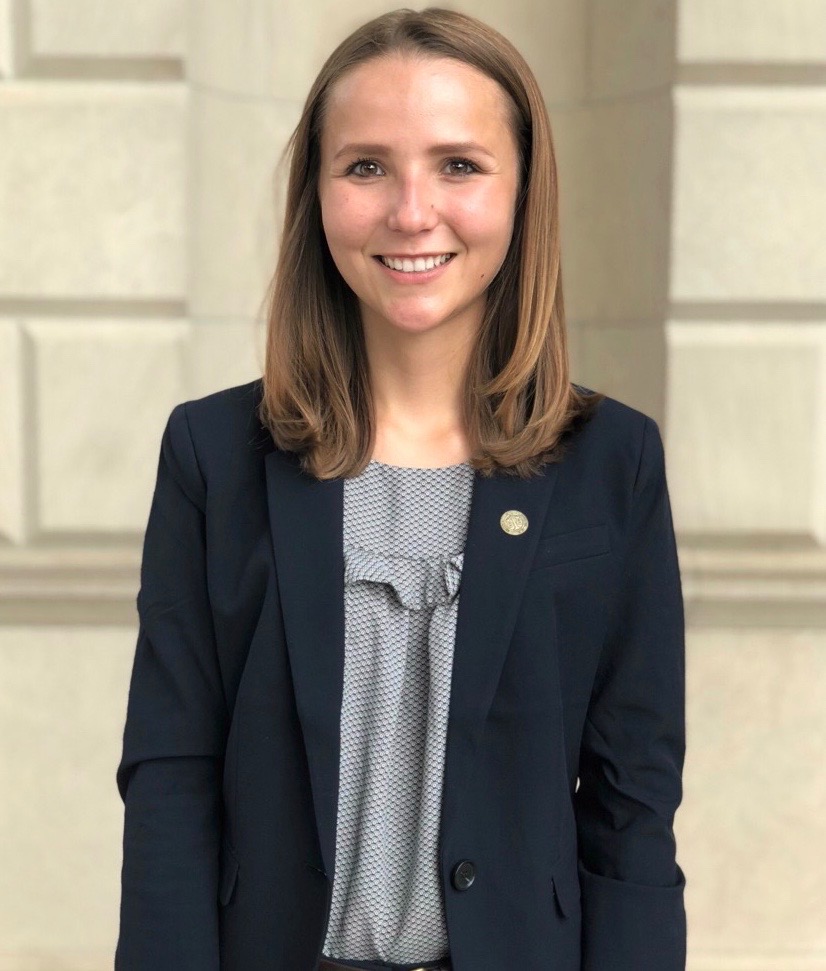REBEKAH WHITTINGTON | August 5, 2020
Rising third-year law student at Emory shares her experience supporting Atlanta tenants facing eviction at the Housing Court Assistance Center (HCAC).
Immediately when the COVID-19 pandemic began, I began to fear what would happen to people who are no longer able to work safely and would be facing eviction. Many questions ran through my mind: Will people be forced to move or find a new home during a global pandemic? Would landlords start taking “self-help” measures to evict people without going through the legal process? Will there be any resources for tenants who are facing eviction given that nearly all business and agencies were closing or reducing hours?

When I learned the HCAC was looking for volunteers, I jumped at the chance to provide some relief for tenants.
Luckily, I learned that tenants are able to get help through AVLF’s Housing Court Assistance Center (HCAC) which is located in the Fulton County Magistrate Clerk’s Office. I had already worked for another legal aid organization in Atlanta and volunteered with AVLF before, so when I learned the HCAC was looking for volunteers, I jumped at the chance to provide some relief for tenants. I eagerly signed up for a couple 3-hour shifts.
Despite my personal familiarity with Georgia real estate law, I quickly learned that I did not need to have any prior experience dealing with real estate or landlord-tenant issues to be an effective volunteer for the HCAC.
Before my first volunteer shift, a representative from AVLF sent me a short training video. Once I arrived at the HCAC, the attorney who runs the center taught me everything else I needed to know.

The disparity in money and power between landlords and tenants is part of the reason I volunteer with the HCAC.
Volunteering at the HCAC has been an extremely rewarding experience. Housing insecurity is a huge problem in Georgia, and the pandemic has only exacerbated the situation. Tenants, particularly low-income tenants, are at a huge disadvantage when seeking legal help compared to most landlords. The disparity in money and power between landlords and tenants is part of the reason I volunteer with the HCAC. My goal in volunteering is to help bridge the gap in resources between landlord and tenant.
Tenants who visit the HCAC generally need help drafting an answer to an eviction complaint. The answer contains the tenant’s defenses to the eviction and any counterclaims the tenant may have. Filing an answer is very important because failing to file an answer could result in a tenant automatically losing their case and facing eviction. Occasionally, tenants will come to the HCAC for guidance related to general landlord-tenant issues or post-judgment issues.

It is critical tenants have access to information about their rights and options. A short consultation with a tenant can change the course of their life.
Being able to counsel tenants on their rights, even during a short consultation, makes a tremendous difference. It is critical tenants have access to information about their rights and options. A short consultation with a tenant can change the course of their life.
During my first volunteer shift, a tenant visited the clinic on behalf of her grandmother who lived in government assisted housing. The grandmother was in the hospital, and her landlord had told her granddaughter that he was evicting the grandmother from the property and to vacate the property within a couple of days. The landlord had not pursued an eviction through the court system. The landlord, like many landlords in Georgia, did not care about following the law when conducting evictions, likely because the landlord probably believed the tenant would not be able to pursue any legal action against him. The landlord even placed dumpsters outside the property for easy access when he removed any belongings left in the property. I was able to help the attorney working in the clinic draft a letter to the landlord which stopped the illegal eviction and gave the granddaughter time to move her grandmother’s belongings out of the property. This story is not a unique one. During my time volunteering at the HCAC, countless other tenants have faced similar issues.

I was hesitant at first to volunteer in person at the HCAC because of the pandemic. During my first volunteer shift, my mind was put at ease.
The Magistrate Court of Fulton County will begin hearing eviction cases again in the coming weeks. I urge anyone who may be interested in helping tenants in Atlanta to volunteer with the HCAC. I was hesitant at first to volunteer in person at the HCAC because of the pandemic. During my first volunteer shift, my mind was put at ease. The HCAC has put into place many safety precautions, and I have never worried about getting sick at the HCAC. The experience is extremely rewarding, and increasingly necessary due to the rising number of evictions in Georgia.
Have you seen the 2019 Annual Report?

Guest Author: Rebekah Whittington
Law Student, Emory University
“My grandmother, Nancy Goldman, taught me that volunteering and giving back to the community is extremely important and something everyone should do if given the opportunity. Volunteering through AVLF during law school and being able to help people in my community who are facing eviction has been a tremendously rewarding experience, and I look forward to volunteering with AVLF throughout my career.”

